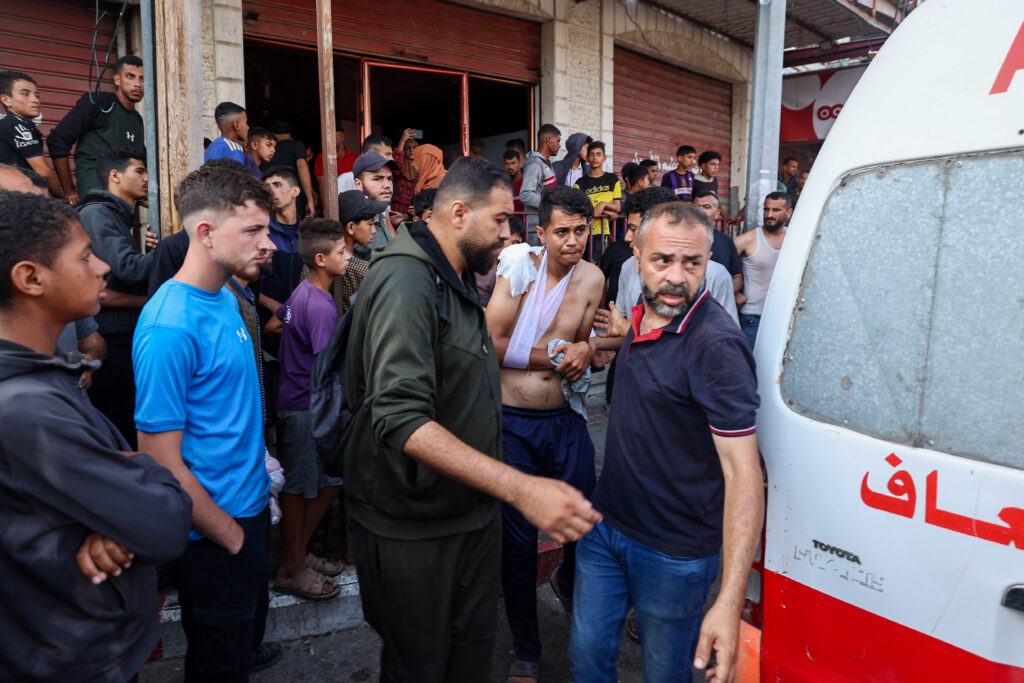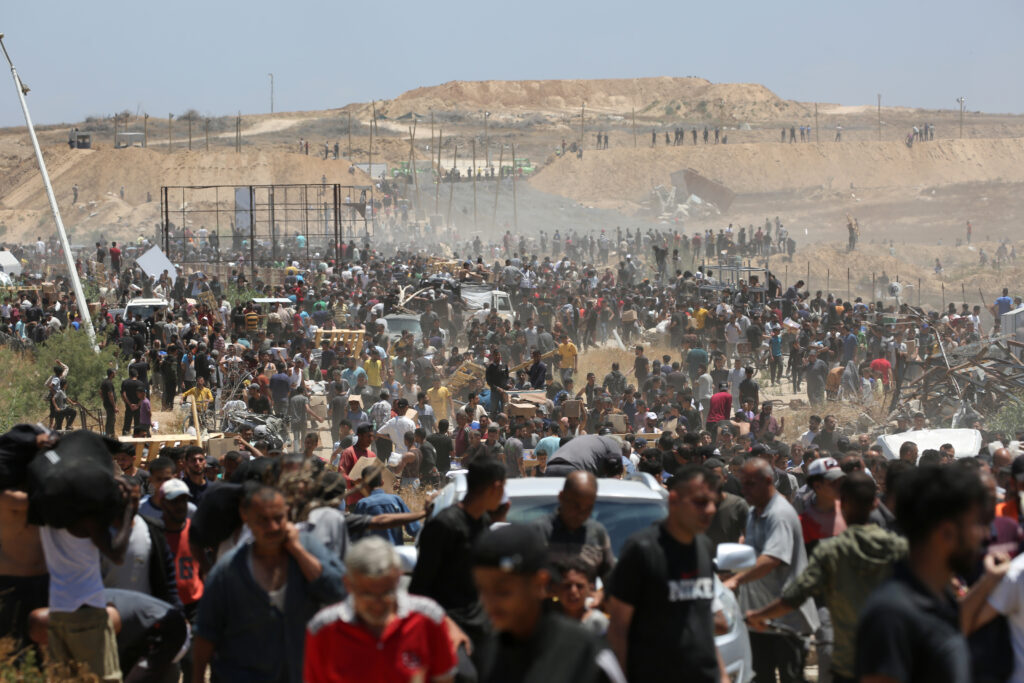Gaza rescuers say Israeli fire kills 22 near aid site as truce talks falter
Gaza rescuers said Israeli gunfire killed at least 22 Palestinians near a US-backed aid distribution site on Sunday, shortly after Washington rejected Hamas’s response to a ceasefire proposal as “totally unacceptable”.International critics, including some allies, have condemned Israel over the humanitarian crisis in war-ravaged Gaza, where the United Nations has warned the entire population faces famine after a more than two-month blockade on aid.Israel recently introduced a revamped aid delivery mechanism in cooperation with a newly formed US-backed organisation, bypassing the longstanding UN-led system.The organisation, the Gaza Humanitarian Foundation, says it has distributed hundreds of thousands of meals since operations began last week, but the rollout has been marked by chaotic scenes at the limited number of distribution centres, as well as reports of casualties from Israeli fire nearby.Gaza civil defence spokesman Mahmud Bassal told AFP that Israeli fire near one of the centres in the southern city of Rafah on Sunday morning had killed “at least 22, with more than 120 wounded, including children”.AFP images from the scene showed some civilians transporting bodies on donkey carts, as others carried away boxes and bags of aid under the low, early-morning sun.The casualties were taken to Nasser Hospital in Khan Yunis, Bassal said.- ‘Chaos broke out’ -Displaced Beit Lahia resident Sameh Hamuda, 33, told AFP he had walked from Gaza City and spent the night with relatives in a tent near Rafah before heading to the aid centre around 5:00 am to wait among a crowd of people.”They began distributing aid, but suddenly quadcopter drones opened fire on the people, and tanks started shooting heavily. Several people were killed right in front of me,” he said.”I ran and survived. Death follows you as long as you’re in Gaza.”Abdullah Barbakh, 58, described “chaos, screaming, and overcrowding” at the scene.”The army opened fire from drones and tanks. Chaos broke out, and the area was filled with martyrs and wounded. I don’t understand why they call people to the aid centres and then open fire on them,” he said. “What are we supposed to do?”Asked for comment, the Israeli military said it was “unaware of injuries caused by IDF (army) fire within the Humanitarian Aid distribution site. The matter is still under review.”Separately, Bassal said one person was killed and many others wounded by Israeli gunfire near another aid point in central Gaza.Only limited amounts of aid have entered Gaza since Israel recently eased a more than two-month total blockade, with a spokesman for the UN humanitarian agency recently calling the territory “the hungriest place on earth”.The United Nations also reported looting of its trucks and warehouses last month.GHF, which employs contracted US security, said it had distributed 2.1 million meals as of Friday.The United Nations and other major aid groups have refused to cooperate with the organisation, saying it contravened basic humanitarian principles and appeared designed to cater to Israeli military objectives.GHF did not immediately respond to a request for comment on the reported deaths.- Truce talks -Nearly 20 months into the war, negotiations for a ceasefire and a deal to free the hostages held by militants have failed to produce a breakthrough since the last brief truce collapsed in March.Israel has since intensified its operations to destroy Hamas.The Palestinian militant group said Saturday that it had responded positively to a US-backed ceasefire proposal, but had emphasised the need for a permanent ceasefire — long a sticking point for Israel.Washington’s main negotiator on Gaza, envoy Steve Witkoff, immediately criticised Hamas’s reply as “totally unacceptable”, an assessment echoed by Israel, which on Friday had warned Hamas to either accept the deal “or be annihilated”.Witkoff urged the group to “accept the framework proposal we put forward”.”That is the only way we can close a 60-day ceasefire deal in the coming days in which half of the living hostages and half of those who are deceased will come home to their families and in which we can have… substantive negotiations in good-faith to try to reach a permanent ceasefire,” he added in a post on X.Of the 251 hostages taken during Hamas’s October 7, 2023 attack, 57 remain in Gaza, including 34 the Israeli military says are dead.The health ministry in Hamas-run Gaza said on Saturday that at least 4,117 people have been killed in the territory since Israel resumed its offensive on March 18, taking the war’s overall toll to 54,381, mostly civilians.Hamas’s attack on Israel resulted in the deaths of 1,218 people, mostly civilians, according to an AFP tally based on official figures.burs-az-smw/dv




